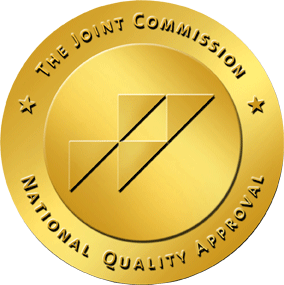
Institute for Life Renovation
Healthy Eating and Living (HEAL) Program
Intensive Outpatient Program for Eating Disorders
You may not require residential treatment for your struggles with food and body image. We can help you determine your specific treatment planning needs after a thorough assessment.
About Our Program
The Institute for Life Renovation’s Healthy Eating and Living (HEAL) program was developed in response to a need within our community for comprehensive outpatient eating disorder treatment. Research indicates that 35-40% of people treated for eating disorders relapse within 18 months of discharge and mortality rates high. Our mission is to offer specialized care that results in greater long-term successful recovery.
Our program offers services to diverse men, women, and LGBTQ+ across the lifespan. We prioritize creating a safe and collaborative space with patients in which to do the work required to get their lives on track. The term "Eating Disorder" is broad and people struggle with different symptoms and severities. We provide treatment for Anorexia Nervosa, Bulimia Nervosa, Binge Eating Disorder, Rumination Disorder, and Avoidant Restrictive Food Intake Disorder (ARFID). Specializing in complexity, this program is equipped for individuals who are struggling with co-occurring diagnoses and life challenges and are eager to get their lives on track in a multitude of ways. Different than many eating disorder programs, we treat underlying causes, cooccurring mental health issues (e.g. depression, trauma, substance abuse, personality issues), and other contributing factors to disordered eating (e.g. family, social, self-esteem). Of course, we focus on symptom reduction, but we also have a goal of relapse prevention.
Our eating disorder track addresses disruptive thinking patterns, emotional dysregulation, and behavioral patterns that interfere with flexible and balanced eating. Using an in-house collaborative multidisciplinary team, we focus on body image, eating behaviors, and overall physical and emotional health. This approach allows for consistent and comprehensive coordination of care. With a staff of highly educated, qualified, and licensed individuals, we provide our patients with the tools necessary to nourish their lives, bodies, and minds. Our clinicians are specialists in the treatment of eating disorders and other co-occurring issues and offer integrated care with our dietitian and psychiatric nurse practitioner. We use only professional comprehensive assessment tools to match the specific evidence-based treatments to each individual patient’s needs. Each patient’s treatment plan differs in terms of intensity, duration, and specific clinical interventions.
Here at HEAL, we emphasize treating the whole person and not just focusing on food. We utilize evidence-based treatments in the form of individual psychotherapy, group psychotherapy, as well as couples and family therapy. Our treatment plans include additional services such as medication management, nutrition sessions, yoga, meditation, marriage and family therapy, life skills, case management, and aftercare planning. Our mission is to offer healing and hope for lasting recovery as we guide patients on their journey with tools they need to live a rich and meaningful life.
References
Arcelus J, Mitchell AJ, Wales J, Nielsen S. Mortality Rates in Patients With Anorexia Nervosa and Other Eating Disorders: A Meta-analysis of 36 Studies. Arch Gen Psychiatry. 2011;68(7):724–731. doi:10.1001/archgenpsychiatry.2011.74
Berends T, van Meijel B, Nugteren W, Deen M, Danner UN, Hoek HW, van Elburg AA. Rate, timing and predictors of relapse in patients with anorexia nervosa following a relapse prevention program: a cohort study. BMC Psychiatry. 2016 Sep 8;16(1):316. doi: 10.1186/s12888-016-1019-y. PMID: 27608679; PMCID: PMC5017136.
Fichter MM, Quadflieg N. Mortality in eating disorders - results of a large prospective clinical longitudinal study. Int J Eat Disord. 2016 Apr;49(4):391-401. doi: 10.1002/eat.22501. Epub 2016 Jan 15. PMID: 26767344.
Hoek HW, van Hoeken D. Review of the prevalence and incidence of eating disorders. Int J Eat Disord. 2003;34(4):383-396.
Services
Although each "Blueprint" treatment plan is different, the services may include:
-
Individual Psychotherapy
-
We use all evidence-based therapies
-
Acceptance and Commitment Therapy
-
Dialectical Behavior Therapy
-
Unified Protocol for Transdiagnostic Treatment
-
Prolonged Exposure Therapy
-
Exposure/Response Prevention
-
Cognitive Processing Therapy
-
Radically Open Dialectical Behavior Therapy
-
Traditional Cognitive Behavioral Therapy
-
-
-
Couples/Family Therapy
-
Group Psychotherapy (multiple groups)
-
Dialectical Behavior Therapy Skills
-
Mindfulness
-
Distress Tolerance
-
Emotion Regulation
-
Interpersonal Effectiveness
-
DBT for Family Members
-
-
Social Anxiety
-
Trauma
-
Body Image
-
Building Identity/Cohesive "Sense of Self"
-
Team Collaboration
-
Art Therapy
-
Anxiety
-
Depression
-
Substance Abuse
-
Eating Disorders
-
Grief and Loss
-
Lunch & Learn Education
-
"Evolve Yourself" Group
-
-
Medication Management
-
Registered Dietitian
-
Yoga
-
Meditation
-
Life Skills
-
Time Management/Budgeting
-
Organization
-
Career Counseling
-
Learn more about our program by clicking here. Learn more about our staff.


People are not the same and treatment shouldn't be either. So, our program individualizes treatment. No two treatment plans are the same.

We use only scientific evidence-based therapies.

Our family specialist can integrate family healing into individual treatment plans.

We have multiple groups and can include targeted group therapy into each person's treatment plan depending upon their individual needs.

The mind is not separate from the body. Medication management and overall health are included in our treatment planning.

Individual and group yoga can be included in treatment plans to improve mindfulness, relaxation, mind/body awareness, and physical health.

Our dietitian works with staff, patients, and their families to help improve healthy eating patterns and overall mental and physical wellness.

We incorporate different types of meditation to improve the mind's ability to be aware, to focus on goals, and to utilize skills learned in therapy.

When applicable, we teach patients life skills, such as time management, budgeting, career counseling, social skills, etc.
2 hr
600 US dollars



